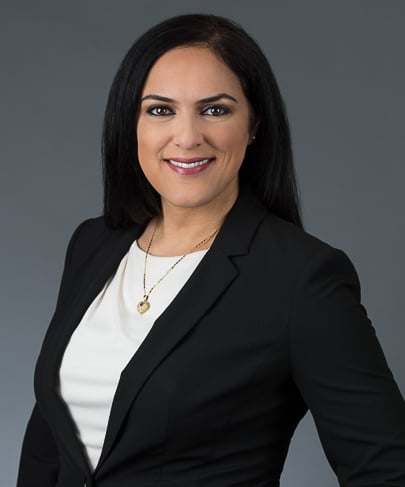What’s New in Immigration Law?
Click “Subscribe Now” to get attorney insights on the latest developments in a range of services and industries.
USCIS Permits Certain EAD Applicants to apply for a Social Security Number on Form I-765
Based on a new information-sharing partnership between U.S. Citizenship and Immigration Services (USCIS) and the Social Security Administration (SSA), effective immediately, foreign nationals in certain categories or classifications can now apply for work authorization and a social security number using a single form which is the updated Form I-765, Application for Employment Authorization.
In order to work lawfully in the U.S., foreign workers in some categories and classifications need both an employment authorization document (EAD) from USCIS, and a Social Security number (SSN) from the SSA. Previously, applicants needed to submit a Form I-765 to USCIS for an EAD, and then submit additional paperwork in-person at their local Social Security office to obtain an SSN.
The revised USCIS form includes additional questions that allow applicants to apply for an SSN or replacement card without visiting a Social Security office. Please see items #10 and #11 on the revised Form I-765. Starting October 3, 2017, the USCIS will transmit the additional data collected on Form I-765 to the SSA for processing. Moving forward, applicants who receive their approved EADs from USCIS should receive their Social Security card from SSA within the following two weeks. It is not clear from the announcement which foreign workers in which categories or classifications may take advantage of the new provision, but presumably, it will be spouses of L and E visa holders and spouses and children of principal aliens if the principal alien and the spouses and children are applicants for Adjustment of Status.
According to the USCIS, EADs serve as documentation to show employers that an individual is authorized to work in the U.S. for a specific time period. SSNs are used to report wages to the government, and to determine an individual’s eligibility for certain benefits.
USCIS Resumes Premium Processing for all types of H-1B Petitions
Effective October 3, 2017, the U.S. Citizenship and Immigration Services (“USCIS”) resumed premium processing for all H-1B visa extension of stay petitions. According to the USCIS, premium processing is now available for all types of H-1B petitions. Prior to March, 2017, premium processing was available if an additional filing fee of $1,225.00 was paid to the USCIS for premium service. In March, 2017, just prior to the start of the U.S. government’s new fiscal year and the start of the FY 2018, H-1B cap-subject, April 1, 2017 filing start date, the USCIS suspended premium processing for all types of H-1B petitions on the grounds that it needed more processing time to address its backlogs on existing cases.
According to the USCIS, H-1B visas provide skilled workers for a wide range of specialty occupations, including information technology, engineering, and mathematics. When a Petitioner requests USCIS premium processing service, USCIS guarantees a 15-calendar day processing time after which time the H-1B petition must be approved or denied, or a Request for Evidence (“RFE”) must be issued. If that time is not met, the agency will refund the Petitioner’s premium processing service fee and continue with expedited processing of the application. If an RFE is issued, the USCIS will resume processing the H-1B Visa Petition but the clock re-sets and the USCIS is permitted an additional 15-calendar day processing time once a response to the RFE is received by the USCIS.
In addition to resuming premium processing for H-1B visa extension of stay petitions, over the past few months, the USCIS had resumed premium processing for H-1B petitions subject to the annual cap, petitions filed on behalf of physicians under the Conrad 30 waiver program, as well as interested government agency waivers and certain H-1B petitions that were not subject to the cap with the extension of H-1B visa cases being delayed until October 3rd.
USCBP Now Prohibiting Attorneys in Secondary Instection Areas
According to the Michigan Chapter of the American Immigration Lawyers Association (“AILA”) as well as reports from other AILA chapters around the country, as of October 1, 2017, U.S. Customs and Border Protection (“USCBP”) is now prohibiting attorneys from accompanying clients in secondary inspection for all matters, with no exceptions, including “up-front” adjudication of TN and L status admissions to the U.S. under the North American Free Trade Agreement (“NAFTA”). According to the Michigan Chapter, this new policy has been confirmed by USCBP supervisors at Detroit ports-of-entry, and apparently includes all ports in Michigan. The new policy is not reflective of a problem with immigration cases recently presented at Michigan ports-of-entry, but is apparently part of nationwide USCBP policy which has yet to be published or confirmed at the federal level.
Among other benefits or applications, applications for admission under the TN category for NAFTA occupations and L status admissions under the NAFTA agreement are presented to Free Trade Officers at U.S. ports-of-entry. Although foreign nationals seeking admission to the U.S. do not have the right to legal counsel until they are inspected, admitted or paroled into the U.S., the new policy goes against a long-standing practice by the USCBP to permit attorneys to be present in secondary inspection so long as they did not interfere with the inspection process.
We believe that the new policy is consistent with the Trump Administration’s new hard-line immigration policy directives made to the various U.S. government agencies involved in U.S. immigration decision-making, including to USCBP under the Trump Administration’s “Buy America, Hire America Executive Order” (“EO”) signed in April, 2017. Under the EO the Trump Administrations directed U.S. government agencies to propose reforms and directed agencies to take a more aggressive stance on policy and decision-making in favor of U.S. workers and U.S. manufactured products.
This client alert is published by Dickinson Wright PLLC to inform our clients and friends of important developments in the field of immigration. The content is informational only and does not constitute legal or professional advice. We encourage you to consult a Dickinson Wright attorney if you have specific questions or concerns relating to any of the topics covered here.
DW Immigration: Global Mobility with a Personal Touch!
FOR MORE INFORMATION CONTACT:
Elise S. Levasseur is a Member in Dickinson Wright’s Troy office. She can be reached at 248.433.7520 or elevasseur@dickinsonwright.com.
Lisa D. Duran is a Member in Dickinson Wright’s Phoenix office. She can be reached at 602.285.5032 or lduran@dickinsonwright.com.
Kathleen Campbell Walker is a Member in Dickinson Wright’s El Paso office. She can be reached at 915.541.9360 or kwalker@dickinsonwright.com.
Kevin J. Weber is a Partner in Dickinson Wright’s Toronto office. He can be reached at 416.367.0899 or kweber@dickinsonwright.com.
Christian S. Allen is Of Counsel in Dickinson Wright’s Troy office. He can be reached at 248.433.7299 or callen@dickinsonwright.com.
Heather L. Frayre is Of Counsel in Dickinson Wright’s El Paso office. She can be reached at 915.541.9370 or hfrayre@dickinsonwright.com.
Suzanne K. Sukkar is Of Counsel in Dickinson Wright’s Ann Arbor office. She can be reached at 734.623.1694 or ssukkar@dickinsonwright.com.
If you would like a printable version of this Immigration alert, click here.
Related Practices
Contacts
Recent Insights
- Industry Alerts USCIS Suspends Premium Processing for H-1B Petitons Beginning April 3rd
- Industry Alerts Critical COVID-19 Guidance for Certain Foreign Workers
- Industry Alerts Cross-Border Travel Between the U.S. and Mexico/Canada – Non-Essential Travel Restrictions Extended to June 22, 2020
- April 14, 2025 Media Mentions Kathleen Campbell Walker was recently quoted in a Vox article, “How worried should legal immigrants be about Trump’s deportations?”
- March 31, 2025 Media Mentions Kathleen Campbell Walker was recently quoted in The Wall Street Journal article, "Border Agents Use More Aggressive Tactics to Question Visa Holders, Tourists."
- March 11, 2025 Media Mentions Kathleen Campbell Walker was recently quoted in the Newsweek article, “What to Know About the H-1B Program: Pros, Cons and Hiring Alternatives.”
- March 11, 2025 In the News Three Dickinson Wright Lawyers Recognized in Chambers Global Guide 2025
- March 03, 2025 Media Mentions Kathleen Campbell Walker was recently quoted in the Snopes article, “Unpacking Trump Admin's Claim That 'All' Undocumented Immigrants Are Criminals.”
- February 04, 2025 Industry Alerts Protecting Students and Schools: Guidance on Federal Agent Presence





